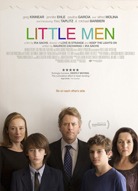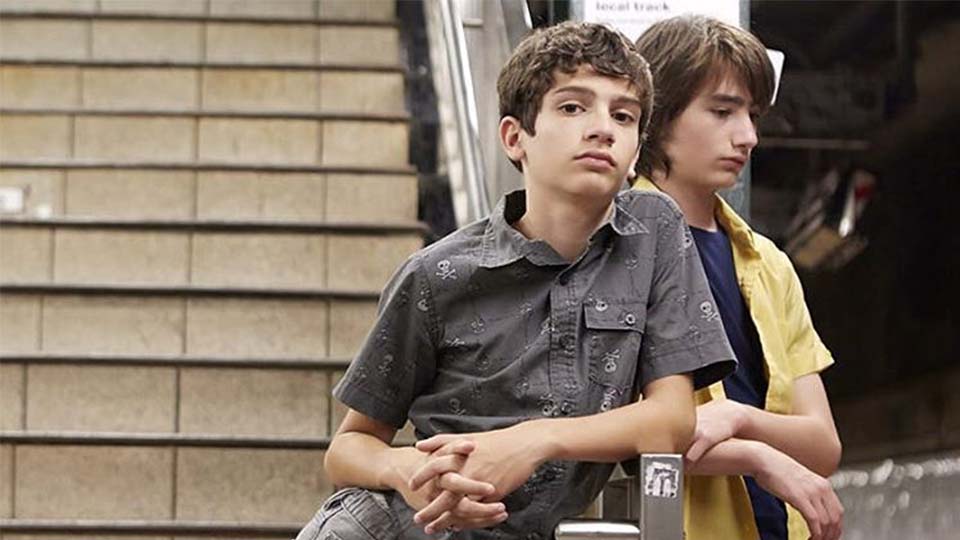The email sent will contain a link to this article, the article title, and an article excerpt (if available). For security reasons, your IP address will also be included in the sent email.
This review was originally published in Nathaniel's column at Towleroad
 Feeling fatigued by summer movie season's emphasis on loud and flashy but ultimately empty spectacles? You're in luck. Little Men, now playing in limited release, is the perfect antidote: quiet but insightful, memorable and substantive. It's not a spectacle by any means but you should still see it inside the movie theater because it's the kind of careful storytelling that benefits from being fully inside of it. Getting lost in a story is much easier to accomplish in the pages of a great novel or the dark of a movie theater than if you wait around to Netflix and chill. The movie comes to us from one of our best LGBT directors, Ira Sachs. The New York based writer/director made his feature debut 20 years ago with The Delta (1996) but recently he's been on quite a roll.
Feeling fatigued by summer movie season's emphasis on loud and flashy but ultimately empty spectacles? You're in luck. Little Men, now playing in limited release, is the perfect antidote: quiet but insightful, memorable and substantive. It's not a spectacle by any means but you should still see it inside the movie theater because it's the kind of careful storytelling that benefits from being fully inside of it. Getting lost in a story is much easier to accomplish in the pages of a great novel or the dark of a movie theater than if you wait around to Netflix and chill. The movie comes to us from one of our best LGBT directors, Ira Sachs. The New York based writer/director made his feature debut 20 years ago with The Delta (1996) but recently he's been on quite a roll.
Little Men is not an adaptation of the Louisa May Alcott sequel to Little Women, but it does feel like a rich unexpected sequel to a more contemporary future classic. Ira Sach's last film was the moving gay seniors drama Love is Strange starring John Lithgow and Alfred Molina whose marriage at the beginning of the film sets off a surprising chain of events which leaves them homeless and at the mercy of friends and relatives. That beautiful movie ended, rather intuitively, with a wordless and narratively inconsequential scene in which we followed their young nephew on his skateboard down the streets of the city at magic hour. The image was rapturous and watery... or rather just rapturous; I was watching it through cascading tears was all. [More...]


 Return to Article
Return to Article